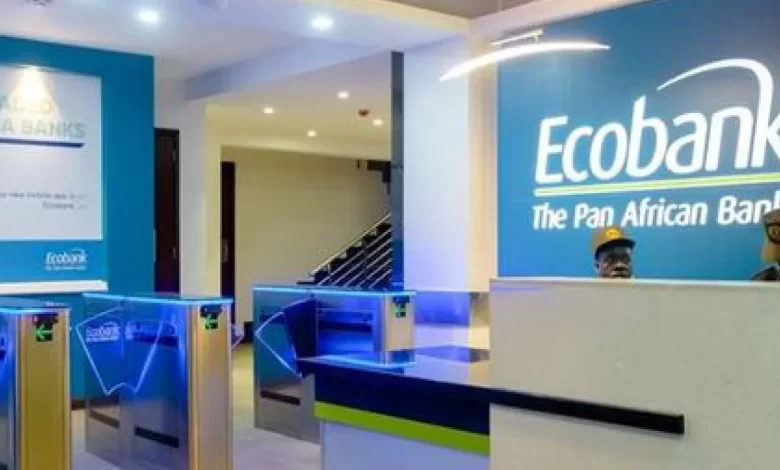Fitch forecast upgrade of Ecobank’s national ratings on receding exchange-rate volatility
By Edu Abade

Fitch Ratings says it foresees an upgrade of Ecobank Nigeria Limited’s national ratings which will result from strengthening its creditworthiness relative to other Nigerian issuers.
According to the international rating agency, it expects to resolve the Rating Watch Negative (RWN) of ENG “within the next six months when exchange-rate volatility may likely recede, the impact on regulatory capital ratios and common equity double leverage is clear and the scale of the second-order economic effects of the devaluation on loan quality becomes evident.”
In its recent report, Fitch noted that factors that could (individually or collectively) lead to positive rating action and upgrade include ENG’s continued compliance with its minimum CAR requirement following the devaluation, with sufficient buffers to accommodate an increase in credit concentration and loan quality risks.
It also noted that an upgrade of ENG’s VR and Long-Term IDR would require a sovereign upgrade and an improvement in operating conditions in conjunction with a strengthened financial profile.
Read also: ERA/FoEN Executive Director Williams Gets IEHESE Award
Fitch Ratings had placed Ecobank Transnational Incorporated’s (ETI) and Ecobank Nigeria Limited’s (ENG) Viability Ratings (VRs) of ‘b-‘ and Long-Term Issuer Default Ratings (IDRs) of ‘B-‘ on Rating Watch Negative (RWN) following the sharp devaluation of the Nigerian naira.
Fitch in a statement indicated that the current RWN reflects the risk of ENG breaching its minimum capital requirements due to the direct effect of devaluation.
“For ENG, it also reflects increased risks to capital from large foreign-currency (FC) problem loans (Stage 2 and Stage 3 under IFRS 9) that have been inflated by devaluation, which may necessitate greater prudential provisions and exert further pressure on the bank’s total capital adequacy ratio (CAR), in addition to broader loan quality risks stemming from the devaluation.
“Fitch expects to resolve the RWN within the next six months when exchange-rate volatility may recede, the impact on regulatory capital ratios and common equity double leverage is clear and the scale of the second-order economic effects of the devaluation on loan quality becomes evident,” it added.
Follow The Trumpet on all our social media platforms for more updates:




